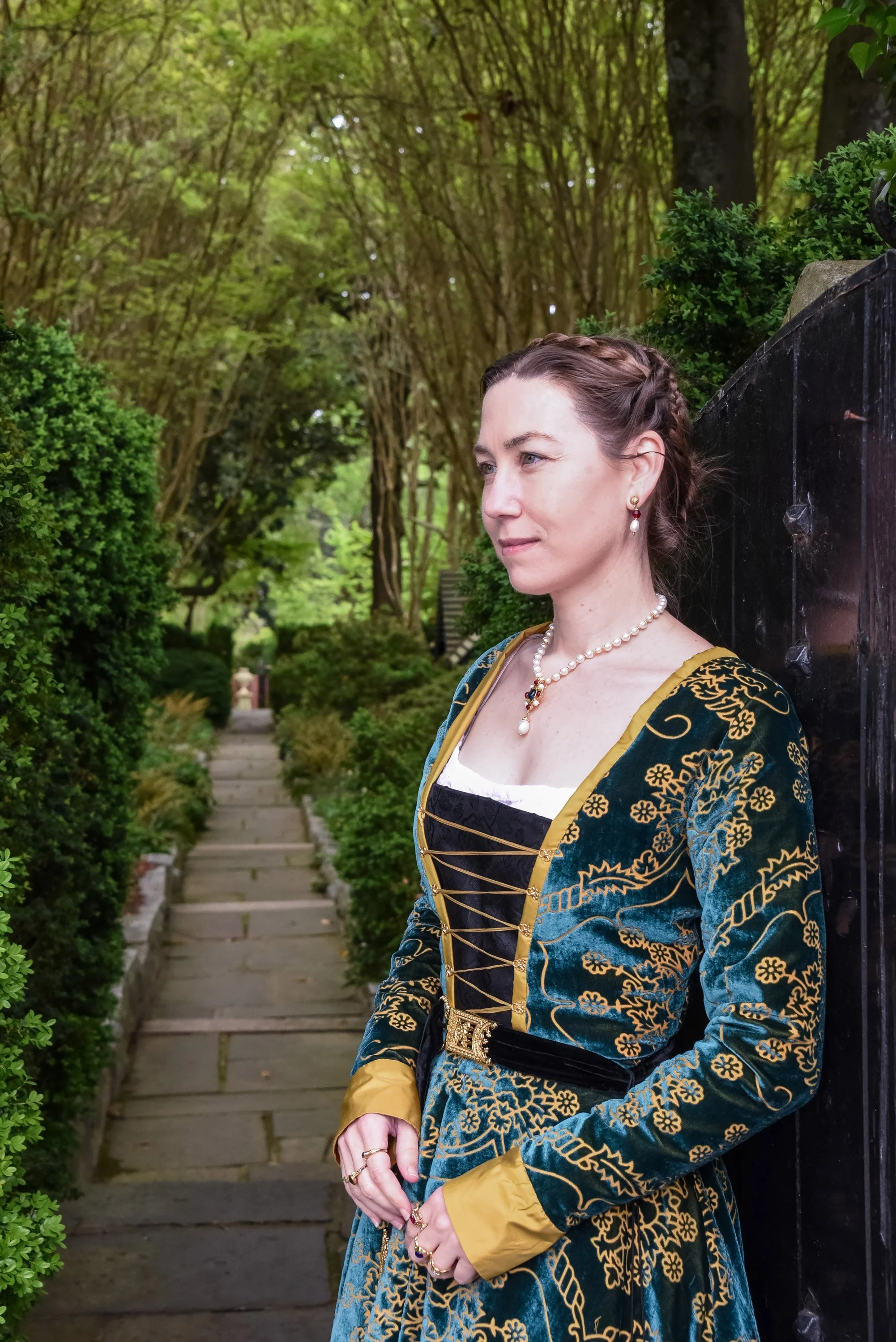
Dressing the Part
From sheep to shawl, let’s take a look at clothing and fashion in the 1600s. Just like people today, the people living and working at Agecroft put a great deal of importance in how they looked.
What you would have worn back then was based on your social class. Certain fabrics were more expensive than others, and more elaborate outfits required the services of a skilled tailor or milliner. Fashion was also controlled by sumptuary laws, which dictated what social class you needed to be in to wear certain materials. We’ll look at how these laws affected fashion.
We’ll take a look at how wool was turned into cloth. Wool was one of the biggest exports from England at the time. The Dauntesey family was involved in the wool trade, which put them at the center of the cloth business. Clothing was expensive, and great care was taken to maintain these items. Therefore, clothing was often mended, handed down, and even recut to reflect new fashions. There was also a business in second hand clothing, which we will compare to the consignment business today.
Finally, we will take a closer look at fashion and how it was reflected in the wider world. We’ll follow the trends to see where they came from. Also, we’ll take a look at how costumes in the theater, particular in Shakespeare’s plays, reflected the fashions of the time.
Join us for this look at clothing and fashion in 17th century England.




